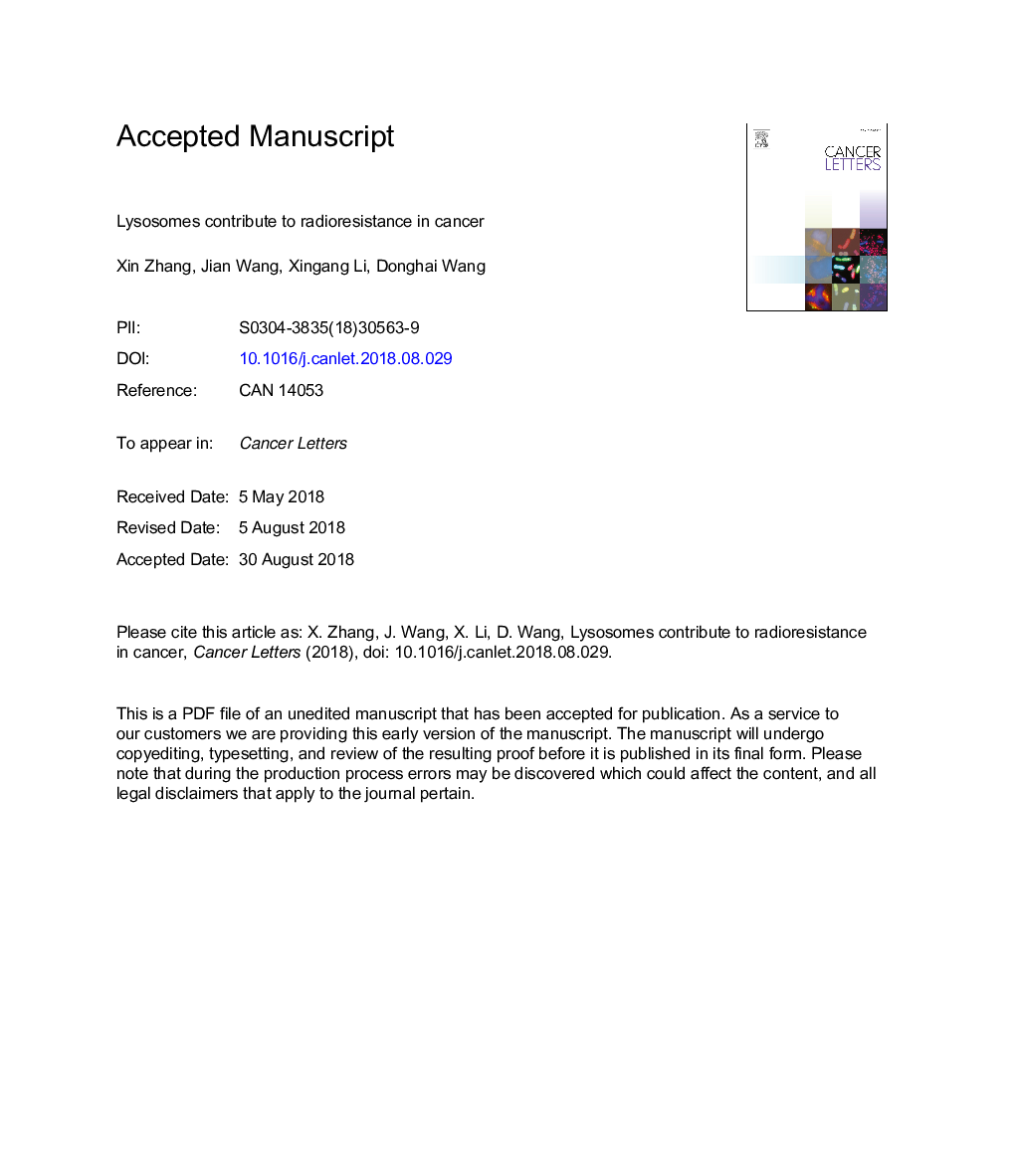| Article ID | Journal | Published Year | Pages | File Type |
|---|---|---|---|---|
| 11025933 | Cancer Letters | 2018 | 42 Pages |
Abstract
Radiotherapy is one of the most widely used methods to treat human tumors. Efficacy is due mainly to the DNA damage it induces. However, tumor cells often develop responsive adaptiveness to radiation treatment to survive, which leads to radioresistance. Many cellular processes, such as DNA damage repair, cell cycle arrest and autophagy, are involved in the development of radioresistance. Few interventions to combat radioresistance exist to date. In recent years, the lysosome has been reported to contribute to chemo- and radioresistance. Although for many years, the lysosome was known as an organelle that degrades waste materials, we now know it is also involved in important signaling pathways regulating cellular homeostasis. Although an increasing number of preclinical studies show that lysosome-related factors promote radioresistance, the role of the lysosome in radioresistance has not been systematically demonstrated. Here, we combine an updated understanding of lysosomes with a review of current studies regarding the role of lysosomes in mediating radioresistance.
Keywords
Related Topics
Life Sciences
Biochemistry, Genetics and Molecular Biology
Cancer Research
Authors
Xin Zhang, Jian Wang, Xingang Li, Donghai Wang,
